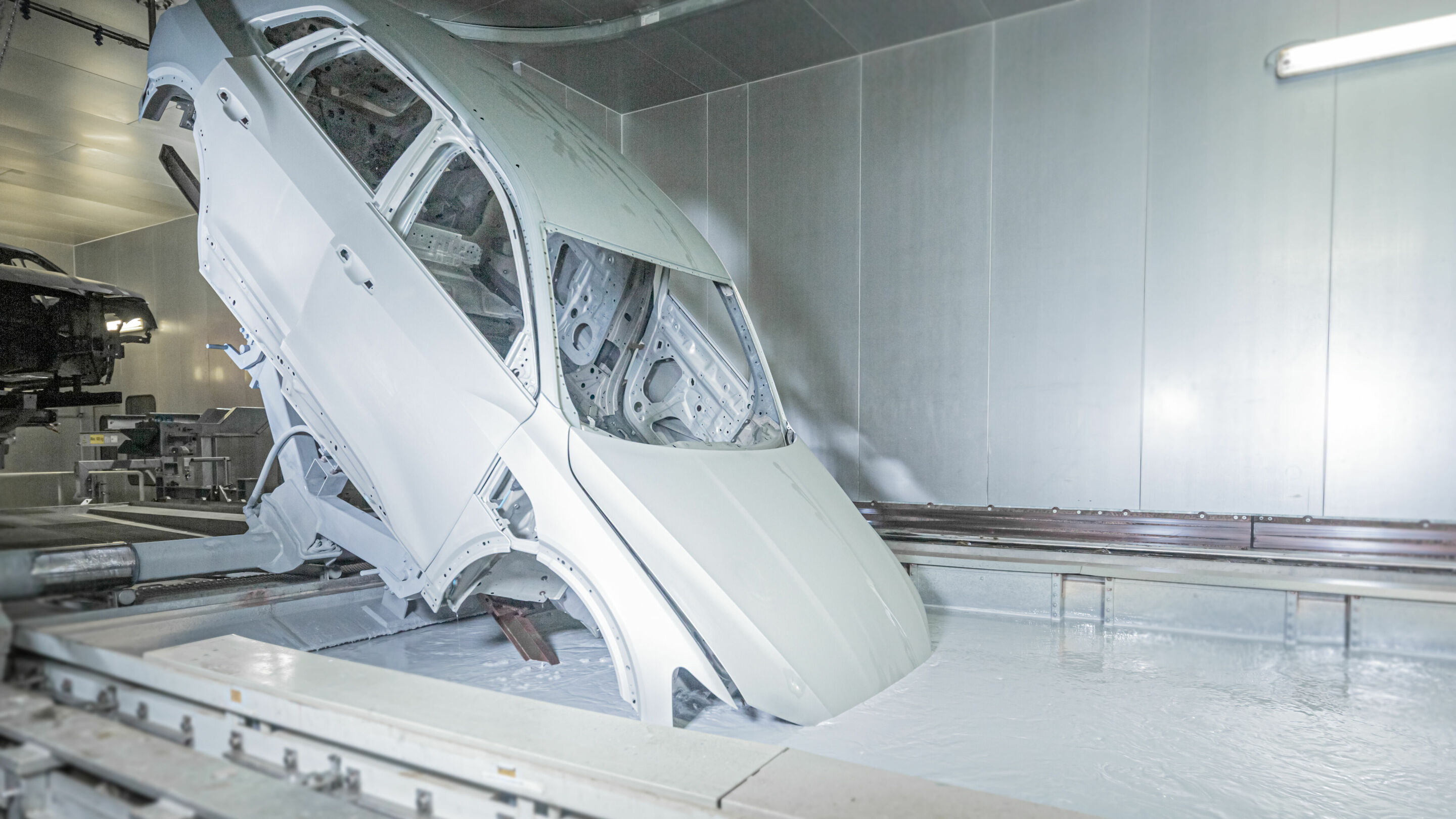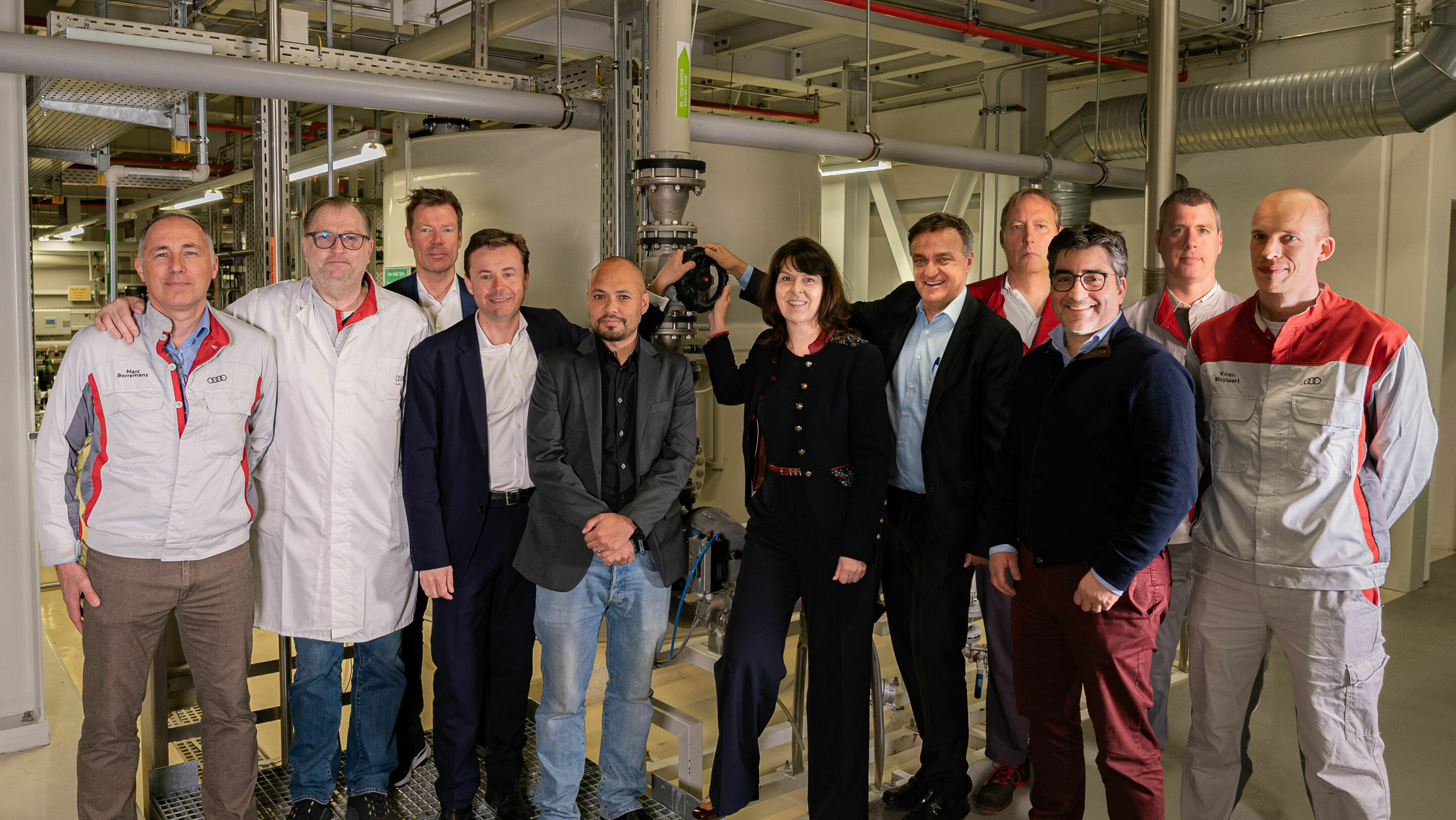Water recycling at Audi Brussels: A milestone for sustainable water use
- Treated wastewater now being used in production in a ‘closed loop’ model
- Cooperation with Hydria will save approximately 100,000 cubic meters of drinking water per year
- Sustainable water use is a key area of activity under the cross-site environmental program Mission:Zero
As of this date, Audi Brussels is using treated water in manufacturing and testing processes, under its pioneering “Re-Use” program. This joint project with the Belgian company Hydria, which specializes in the collection and treatment of wastewater, marks a significant step forward for water conservation in automotive manufacturing.
Audi Brussels continues to expand its sustainability initiatives, and the launch of its “Re-Use” project is a major milestone in an important aspect of sustainability: reducing water consumption. In automotive manufacturing, water is used primarily in paint shops and for vehicle leak testing. Thanks to a cooperation with the Belgian company Hydria, the company is now able to reuse water in a cyclical model with virtually no loss. Industrial wastewater from the Brussels site is treated, not to drinking water quality but for repeated use in plant processes.
Recycling water in a closed loop
In partnership with the Brussels region, Hydria manages the Brussels South wastewater treatment plant located near the Audi facility. This is where the industrial wastewater from production is treated and then returned to the Audi plant. The approach allows Audi Brussels to integrate the treated wastewater in its industrial processes. By implementing this closed loop, the site is able to save approximately 100,000 cubic meters of drinking water per year, the equivalent of about 40 Olympic swimming pools.
This makes Audi Brussels the first company to permanently implement this solution in cooperation with Hydria.
Making a contribution to Mission:Zero
The CEO of Audi Brussels, Volker Germann, emphasizes the significance of the project: “Clean water is one of the most valuable global resources and is the basis for all ecosystems. Therefore, conserving our drinking water resources is a key element of our cross-site environmental program Mission:Zero. Integrating ‘Re-Use’ water into our industrial processes highlights our commitment to sustainable business practices.”
Damien de Keyser, CEO of Hydria, is also proud of the partnership, and emphasizes: “Having successfully tested the use of our ‘Re-Use’ water at the Brussels South wastewater treatment plant, we are now looking forward to providing our first customer, Audi Brussels, with this high-quality water, helping to conserve this valuable resource.”
The Brussels plant has been using renewable energy since 2018, making it the world’s first certified carbon-neutral high-volume production1 plant in the premium segment. Since 2018, the plant has been producing fully electric models – currently, the Audi Q8 e-tron and Audi Q8 e-tron Sportback roll off the line here. As a pioneering example of a sustainable production site, Audi Brussels strives to continuously optimize its use of resources by deploying efficient technologies in its processes.
The initiative takes place in the context of Audi’s cross-site environmental program Mission:Zero, of which one key component is the efficient use of water. Audi plans to halve its ecologically weighted water consumption value by 2035. Other areas of activity in Mission:Zero include resource efficiency, decarbonization, and the protection and preservation of biodiversity. The company’s vision is to create a circular economy where resources such as plastics, water, and other raw materials are used in closed cycles. Pilot projects are intended to pave the way for a long-term circular system.
1Audi understands net-zero CO2 emissions to mean a situation in which, after other possible reduction measures have been exhausted, the company offsets the carbon emitted by Audi’s products or activities and/or the carbon emissions that currently cannot be avoided in the supply chain, manufacturing, and recycling of Audi vehicles through voluntary offsetting projects carried out worldwide. In this context, carbon emissions generated during a vehicle’s utilization stage, i.e. from the moment it is delivered to the customer, are not taken into account.

